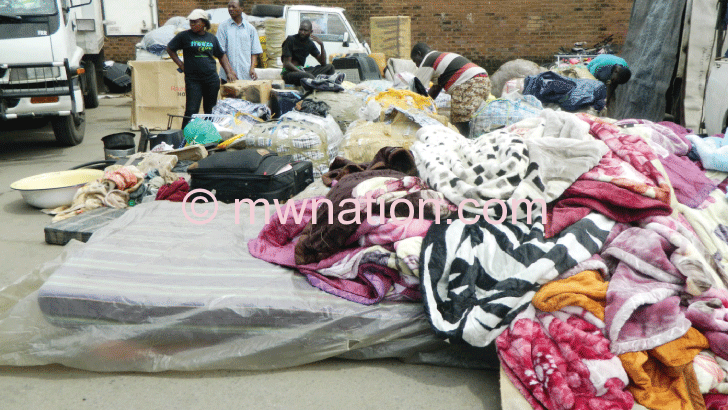Corruption killing cross border trade
Malawi may not fully benefit from the Common Market for Eastern and Southern Africa (Comesa) Simplified Trade Regime (STR) which has the potential to revolutionalise the economy.
Under the STR, certain goods are exempted from duty as long as they are valued at under $1 000 (about K655 000). These goods include maize, beans, peanuts, millet, vegetables, fish, cooking oil and cosmetics.
However, many small cross-border traders who are supposed to benefit from the STR are shunning border posts and prefer using uncharted routes due to “rampant corruption among tax authorities” and ignorance on how the STR works.

In an interview, Malawi Economic Justice Network (Mejn) executive director Dalitso Kubalasa said graduation of these traders to the formal sector will increase the taxable businesses, subsequently easing pressure on the Malawi Revenue Authority (MRA).
The tax collecting authority has of late been under collecting revenue. As at November 2015, MRA reported a K7.05 billion shortfall, a position that puts government projections off course.
Said Kubalasa: “It could also be a very important step towards Malawi realising its age-old dream of becoming a net exporter other than what it is—a net importer with a trade deficit in its current account. For this to happen, our entrepreneurs, particularly these small traders-cum-smallholder farmers and cross-border traders need to know about this.”

He also stressed the need for serious awareness campaigns on the STR so that nobody takes advantage of, or exploits small-scale traders on account of their ignorance.
“Most of these small-scale traders still are in the dark about what they should pay to customs and what they should not. They go to greater risks, seeking to avoid customs officials in borders through uncharted ways, and getting abused, risking getting their goods impounded and/or stolen.”
Added Kubalasa: “If our neighbours, such as Zambia, Tanzania are already benefitting because they are even more organised and maximising their trade from the STR; why can’t we do the same? The STR is surely capable of yielding the positive response, and impact on the small-scale traders with opportunities for fast growth.”
While acknowledging the positive impact the STR has had on some traders, Small and Medium Enterprises Association (Smea) president James Chiutsi, said traders are still facing a number of challenge under the system.
“The problem is that tax authorities are viewed negatively by traders due to a lot of reasons, perceived corrupt practices being one of them. This perception negatively affects businesses.
“Most traders complain about rampant corrupt practices at the boarder posts”, he said.
COMESA introduced the STR in 2009 to solve small scale cross border traders faced like lack of information on the benefits of trading with other COMESA countries and complex documents as well as complicated processes of filling forms at borders.
It has three elements: a simplified Certificate of Origin from customs as the trader leaves the country to certify the origin of the goods; a common list of goods which is displayed in the border offices and elsewhere through cross-border trade associations and serves at the certificate of origin for these goods; and a simplified customs document, that is filled in as the trader enters the country he/she is exporting to.n





